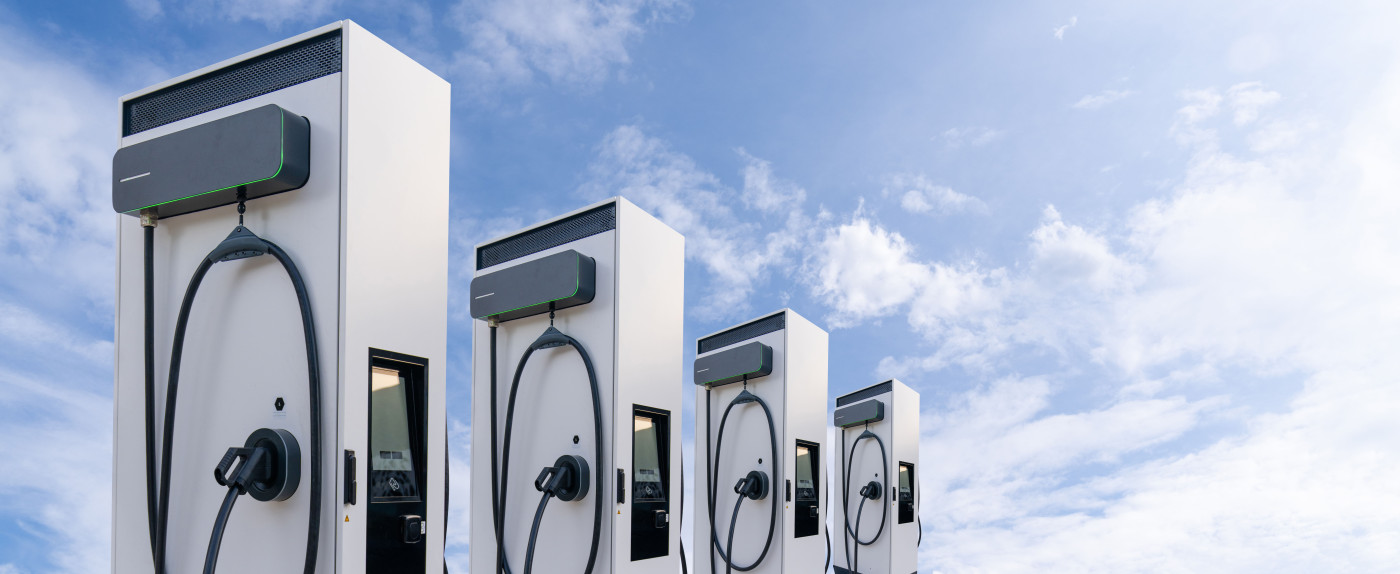Industrializing charging stations: tackling the challenge of electric mobility

Last May, several GEOLEAN Energy employees took part in the Drive to Zero trade show in Paris, at the invitation of one of our customers, to meet key players in electric mobility. The sector is booming, with a mix of major industrial groups, very small businesses and innovative start-ups.
The diversity of products is impressive: from the simple domestic terminal to the “ultra fast” highway charging station, each player is seeking to stand out in a fast-growing market.
A common challenge: winning tenders
Whatever their size or ambition, companies in the sector share a common goal: to win tenders, which remain the main lever for acquiring new business. The criteria are implacable:
- Short lead times: every day without an installed terminal represents a loss of earnings for operators. The ability to deliver quickly is therefore a decisive competitive advantage.
- A competitive price: in a market where international competition, particularly from China, is fierce, cost control is essential.
The sector's paradox: producing specific products at standard prices
Manufacturers have to solve a complex equation: responding to ultra-customized demands (each call for tenders requires specific technical features) while manufacturing with the lead times and costs of a standardized product.
As a result, the players involved have to work on the following triptych: Engineering / Production / Procurement.
To meet this challenge, it's impossible to start from scratch every time a request has to be met. The challenge goes far beyond production. Thinking in terms of a platform facilitates and accelerates not only the industrialization process, but also the whole purchasing / supply chain, which in this sector can quickly lose several months or even more.
GEOLEAN Energy's support: creating a flexible, high-performance industrial tool
It was against this background that we helped our customer industrialize the production of charging stations at its plant in Germany. Our mission:
- Deploy an optimized production tool, capable of absorbing variations in demand without loss of efficiency.
- Create the flexibility needed by the Design and engineering department to accelerate the entire process, from response to the call for tenders to delivery.
Thanks to a global approach, from design to delivery, our customer gained in agility and competitiveness. Two figures to illustrate the results: lead time was cut from 12 weeks to just one week, with capacity multiplied by 10, from 5 to 50 units per month.

Electric mobility, an industrial as well as a technological challenge
The transition to electric mobility is well underway. While end-users may still be reluctant to make the switch - due to fear of breakdowns, lack of charging points or charging times deemed too long - it is on the industrial level that a large part of the success will depend.
Winning this race depends not just on the performance of vehicles or ever-faster charging stations, but on the ability of players to industrialize rapidly, on a large scale and at a controlled cost. The challenge is not just technological: it's organizational, strategic and logistical.
Those who succeed will be those capable of transforming constraints into opportunities, by rethinking their processes, optimizing their supply chains and placing flexibility at the heart of their industrial model. The future of mobility is not just built on electrified roads, but in factories capable of keeping pace with a rapidly accelerating market.